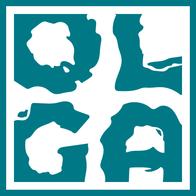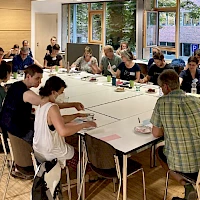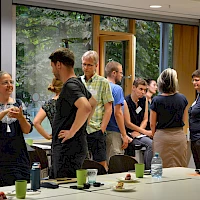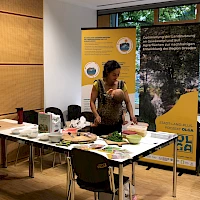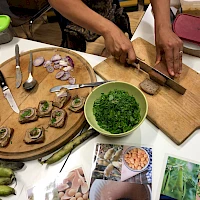What goes "sustainably" in Dresden?
18.07.2022
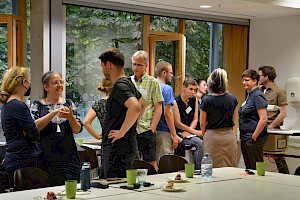
It has been talked about for a long time, now at the end of June it came to the first "Come Together": Stakeholders from the City of Dresden and the TU Dresden met at the latter for the workshop "What's sustainable in Dresden?" as part of the TUD Sustainability Week. The meeting was organised by the Green Office of TU Dresden and Zukunftsstadt Dresden, which has been funded by the Federal Ministry of Education and Research since 2015 and has so far produced a number of sustainable citizens' projects and initiatives. During the moderated exchange over coffee and cake, a number of synergies between TU institutions and the municipal departments emerged with regard to the sustainable development of Dresden and the overall social transformation in the city. Although both institutions have already worked together on individual projects in the past, the need for stronger and more permanent cooperation was felt again and again. Topics that were addressed in this context and could play a role in the future between science and administration were:
- Climate-neutral and smart city 2030
- Consideration of climate protection in the renovation of buildings, e.g. vegetation and photovoltaics on roofs
- Sustainable equipment for events
- Knowledge transfer in the development of sustainability strategies and integrated climate protection concepts
- Inclusion and participation
- Regional and climate-adapted agriculture and food system
- Education for sustainable development
- Protection of biodiversity and development of urban nature
OLGA was also present at the exchange. We made contacts to promote research and development on sustainable approaches to land management and food habits (regional, seasonal, climate-adapted!) in the region and to raise awareness for regional value creation in agriculture and food in general. At TU Dresden, there are already initiatives in this regard for more regional communal catering in the TU canteens and the stronger integration of educational offers for sustainable development in the area of agriculture and nutrition for students, e.g. directly on a campus-owned agricultural practice and experimentation area. All participating projects and initiatives were able to present themselves in the form of a project stand. We didn't need to be told twice and turned our OLGA info point into a tasting stand for mini-breads made from regional field bean flour with at least locally prepared field bean and lupine hummus with lots of information about the nutritional value and the climate balance of pulses for the stand visitors.
The networking process between administration and science will already be continued beginning of September at a second "sustainability" meeting.
